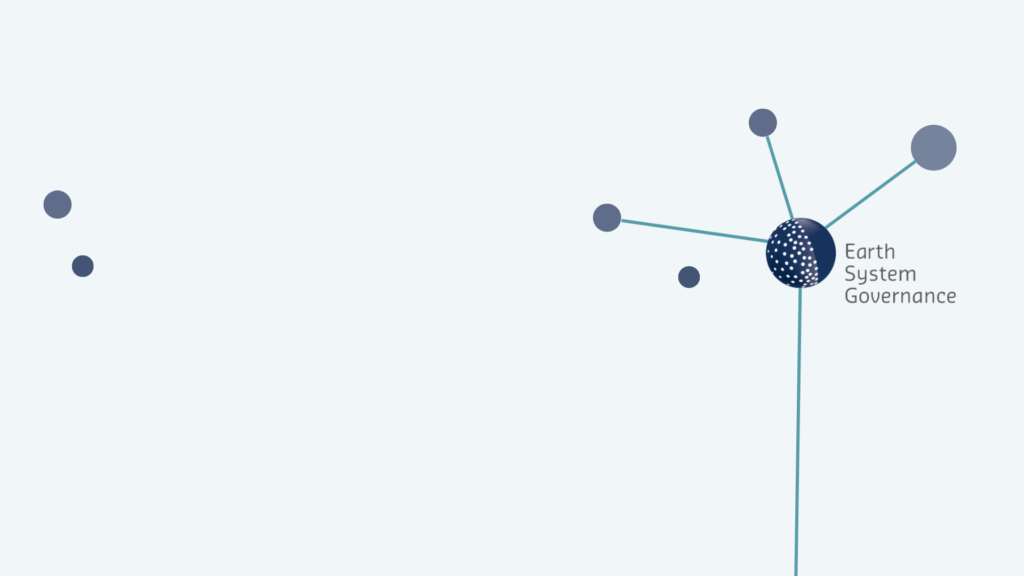In two weeks, some of you will be attending the Earth System Governance Annual Conference in Oaxaca, Mexico. As you may (or may not) know, academic conferences can be overwhelming. In this brief, research fellow Carole-Anne Sénit provides you with some tips on how to strategize and make the most out of such global academic fests.
Read the brief below.
HOW TO MAKE THE MOST OUT OF ACADEMIC CONFERENCES?
by Carole-Anne Sénit
In two weeks, some of you will be attending the Earth System Governance Annual Conference in Oaxaca, Mexico. As you may (or may not) know, academic conferences can be overwhelming, with plenty of parallel sessions, plenaries and semi-plenaries, and social events that keep you busy all day long. For us early career researchers, the primary goal of academic conferences is to get feedback from our peers, either junior or senior, on our current paper projects and to confront our research to other theoretical and methodological frameworks. Comments and insights from our colleagues will allow us to consolidate our paper(s) towards publication in an international peer-reviewed journal. But academic conferences are also much more than that. In fact, you could approach academic conferences with three additional objectives in mind:
- Keep up with emerging trends in your field;
- Speak to your research hero(s);
- Develop new and exciting collaborative projects.
My first international academic conference was actually an ESG one, five years ago in Norwich. I remember being overwhelmed by information overload, not getting any sleep the night before my presentation, and staying glued to my two PhD friends the entire event. This is obviously NOT the way to go (no offense, Viviane and Clément). Based on my own experience and reflexive thinking, the following paragraphs elaborate on the above-mentioned objectives and provide you with some tips on how to strategize and make the most out of such global academic fests.
There is so much information packed into a well-structured academic conference that attending presentations will certainly allow you to learn about new work and keep up with emerging trends in your field. Opening your mind to other approaches and thinking reflexively about your peers’ work will enrich your own research. Don’t miss any opportunity and prepare properly with the following few tips:
- Don’t wait for Conference Day 1 to scan the program. Do your research on beforehand and figure out in advance what you want to get from the conference. Are you interested in a particular issue field, theoretical concept or method? Select the sessions that best fit these interests.
- Pace yourself to avoid information overload while you are not even halfway through the conference. You don’t want your brain to melt. It might be worthwhile to skip some sessions to use the time for reflection, organizing your notes and linking them to specific aspects of your research, chat with people, or just to take a break and get some fresh air.
- Attend winter or summer schools organized ahead of the conference. These side events will allow you to increase your theoretical and empirical knowledge, as well as your methodological skills. In addition, these smaller and more intimate settings allow you to have a direct access to renowned senior professors, which brings me to my next point: networking.
Academic conferences gather most of the researchers working in your field and provide therefore extensive opportunities to network with senior peers, including your research hero(s)! As early career researchers, you should envision these global scientific gatherings as one big academic speed-dating. You will eventually be done with your PhD/postdoc at some point, and strategic thinking about future career steps starts now.
Here are a few additional tips to prepare well:
- Carefully study the programme to pin down the researchers that have been key to your thinking and reach out to them by email (with enough anticipation as senior researchers tend to have their agendas fully booked very quickly) to suggest a meeting at a time that suits them (the time when they are preparing to give a presentation – or being mobbed after giving one – is not that time).
- Then, make sure you have something of value to say. This sounds obvious, but if you are likely to get tongue-tied, plan what you will say in advance. For instance, prepare a pitch to succinctly explain the main points of your work, while always keeping in mind how you would present your work to someone who doesn’t share your area of expertise. Don’t get into unnecessary details except if someone asks you to.
Finally, academic conferences offer avenues to develop exciting collaborations. As in United Nations negotiations, the most interesting developments (also) happen in the corridors. During the numerous social events taking place during the conference, you will most certainly meet and chat with new colleagues (they may eventually become your friends!). After one drink or two, these discussions may result in your engagement in a new exciting joint project (this is actually how the early career communications started!). These projects could include articles or books, panel proposals for upcoming conferences, research project proposals, etc. This is important to foster interaction among research centers and research fields, yet, remember not to commit to something if you think you will be unable to deliver.
Attending an academic conference is one of the most intellectually invigorating experiences academia has to offer. They allow to peer over the fence and see what is going on outside of a particular speciality. In doing so, they will help you forge new connections, further your research, and enrich your career. I hope that with these few tips, you will be ready to efficiently navigate your upcoming conference!


